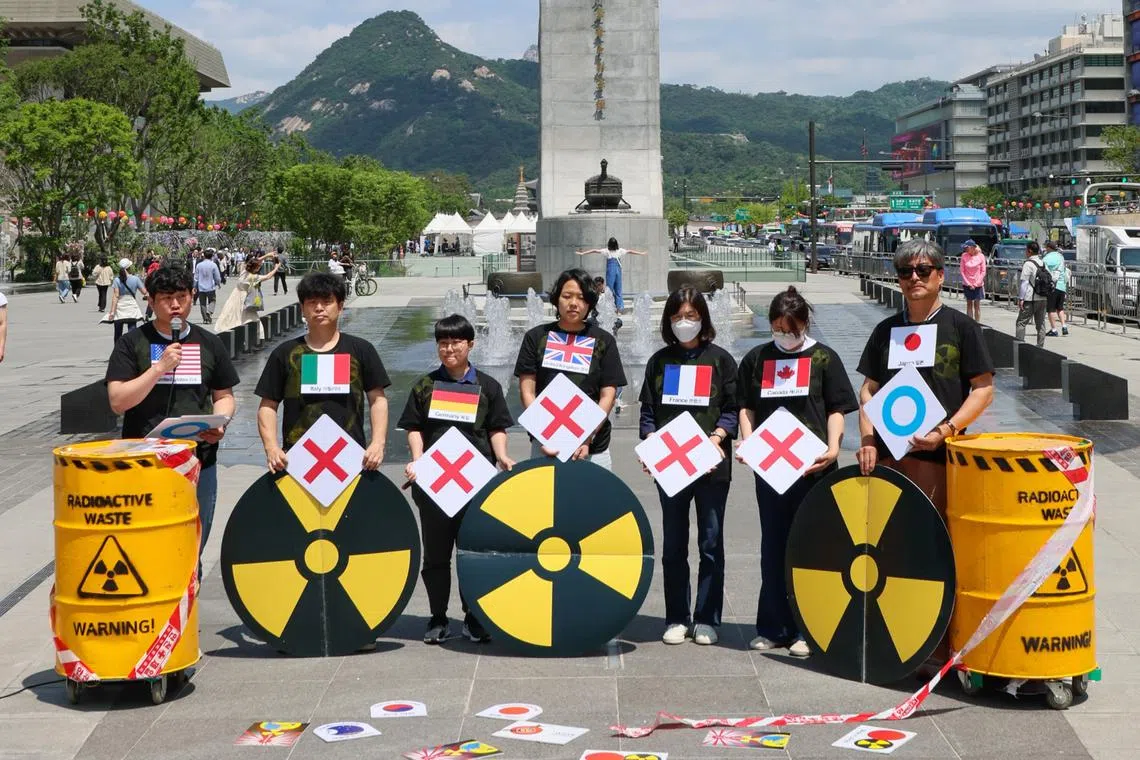South Korean experts to visit Japan nuclear plant amid dispute
Sign up now: Get insights on Asia's fast-moving developments

Plans for the release of treated waste water from the Fukushima Daiichi nuclear plant have caused widespread concern in South Korea, with the disagreement posing a potential threat.
PHOTO: EPA-EFE
TOKYO – A delegation of South Korean experts will visit Japan from May 22 to 25 to gather information on the planned release of treated waste water from the tsunami-crippled Fukushima Daiichi nuclear plant, the Japanese Foreign Ministry said.
The group plans to hold a meeting in Tokyo next Tuesday. It will then visit the plant on Wednesday and Thursday to receive explanations from Japanese officials, the ministry said in an e-mailed statement Friday.
Plans for the release have caused widespread concern in South Korea, sought to repair ties
The Japanese utility giant Tepco is planning to release more than 1 million cubic metres of treated radioactive water – enough to fill 500 Olympic-size swimming pools – from the nuclear power plant into the Pacific Ocean, part of its nearly US$200 billion (S$269 billion) effort to clean up the worst nuclear accident since Chernobyl.
Japan’s government has argued the release of the water can be done safely and is necessary, as storage space is running out at the plant. The nation’s nuclear regulator last year approved the release plan, which includes removing most radioactive elements and diluting the water, then releasing it about 1km offshore using an undersea tunnel.
“As it is so close there is ongoing frustration and anxiety especially among the people engaged in fisheries,” Korea National Diplomatic Academy Chancellor Park Cheol-hee, an adviser to Mr Yoon, told reporters earlier this week. He called on Japan to be “modest and humble” in explaining the issue.
China and Taiwan have also expressed concerns


